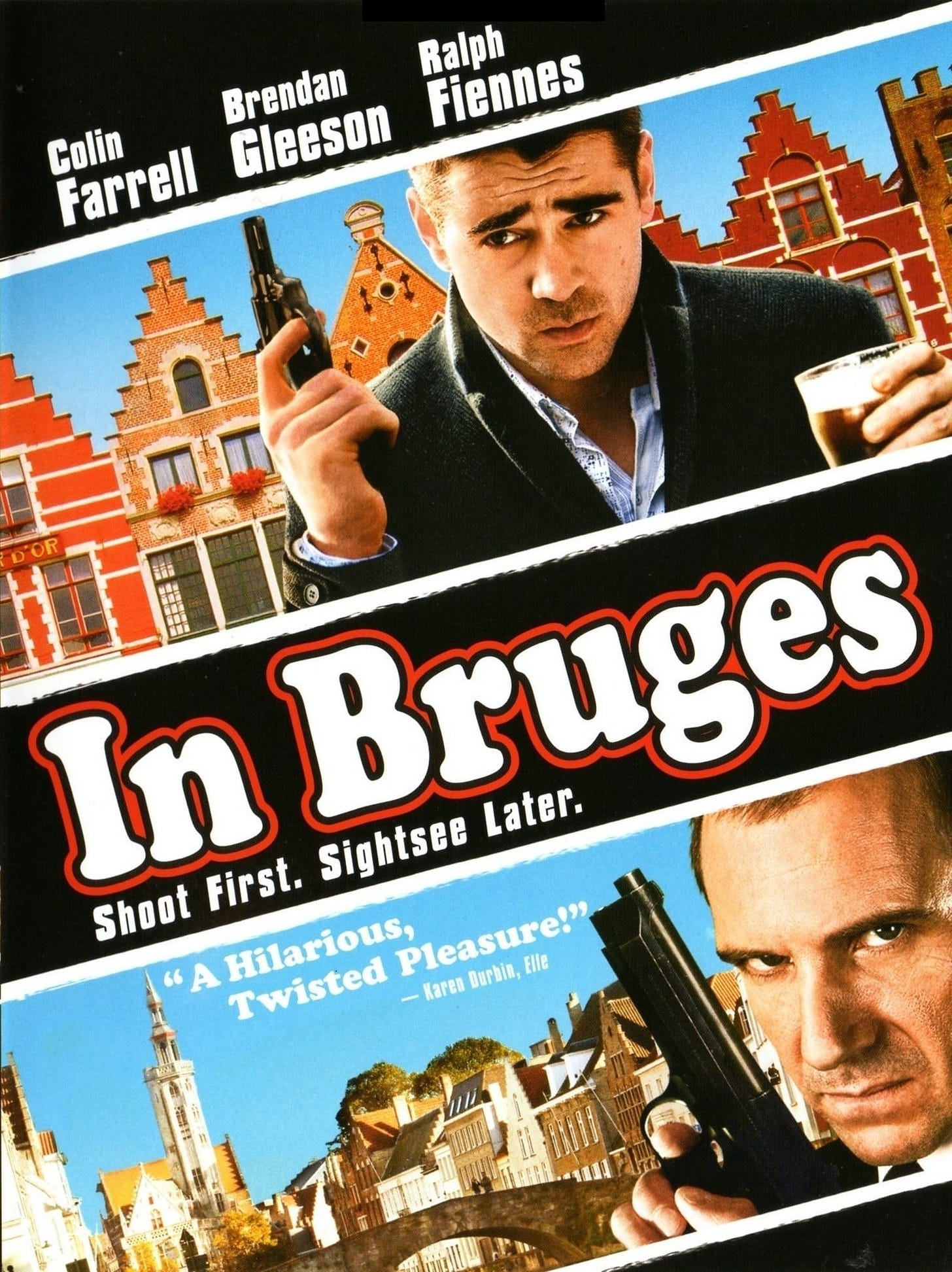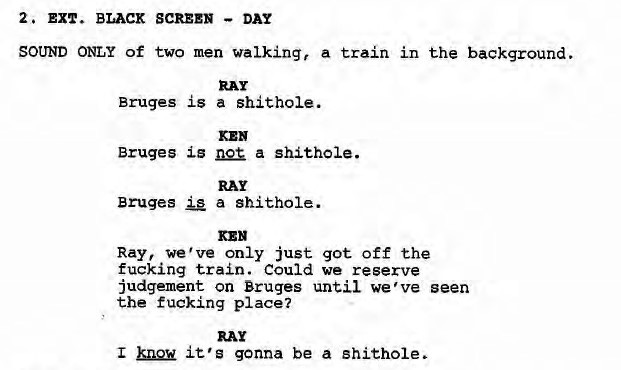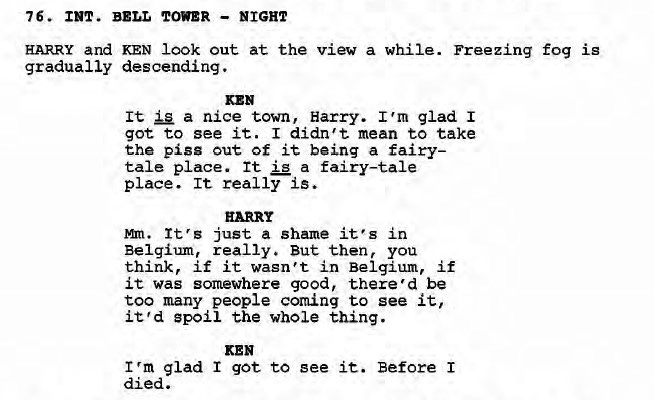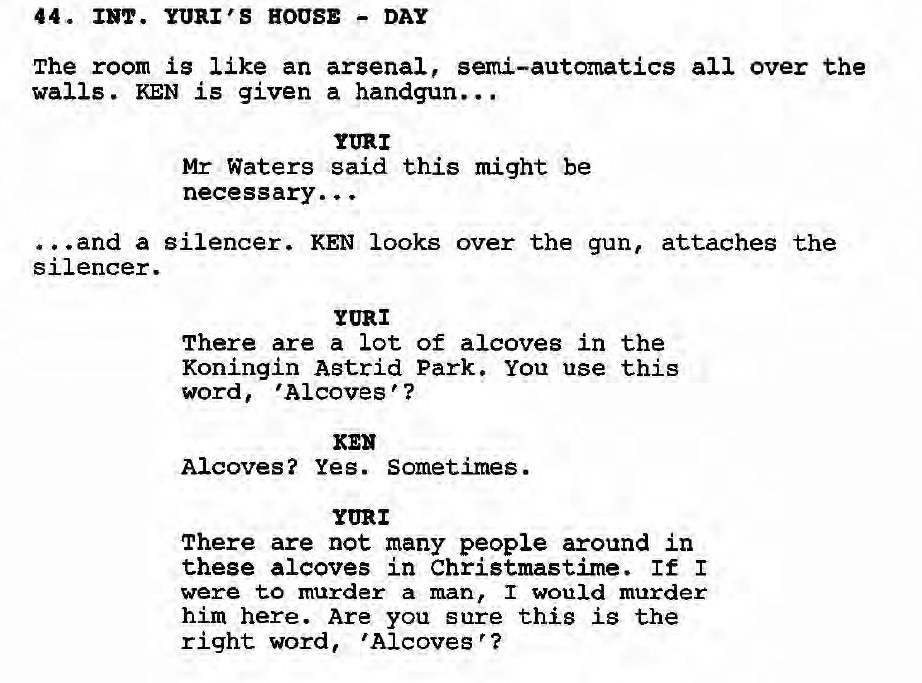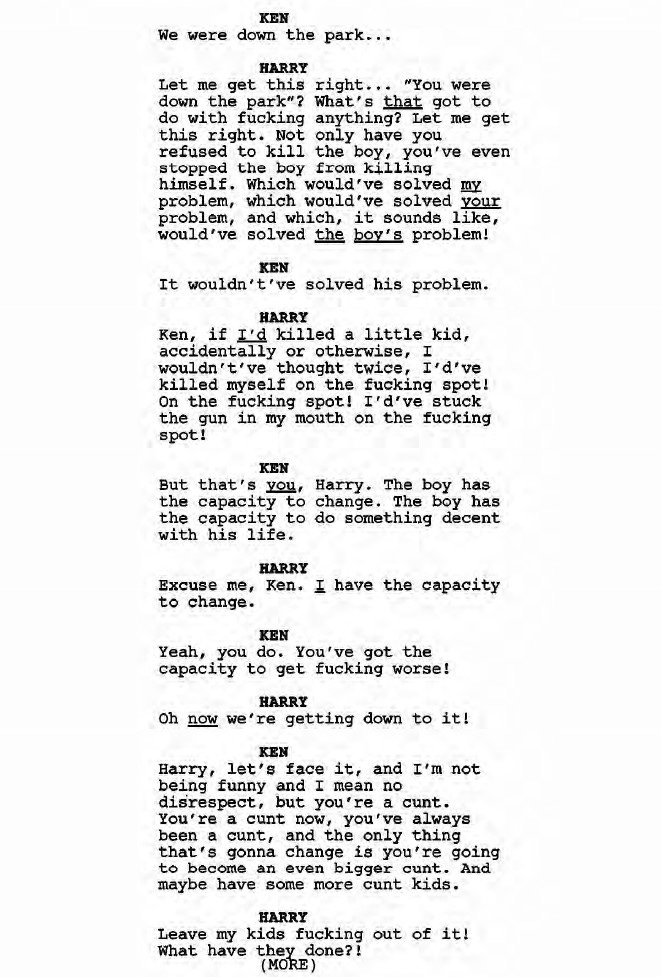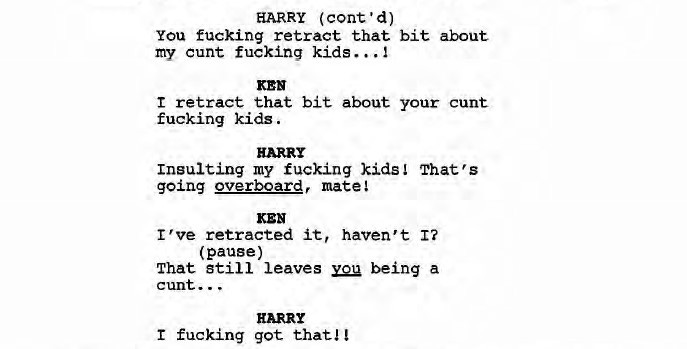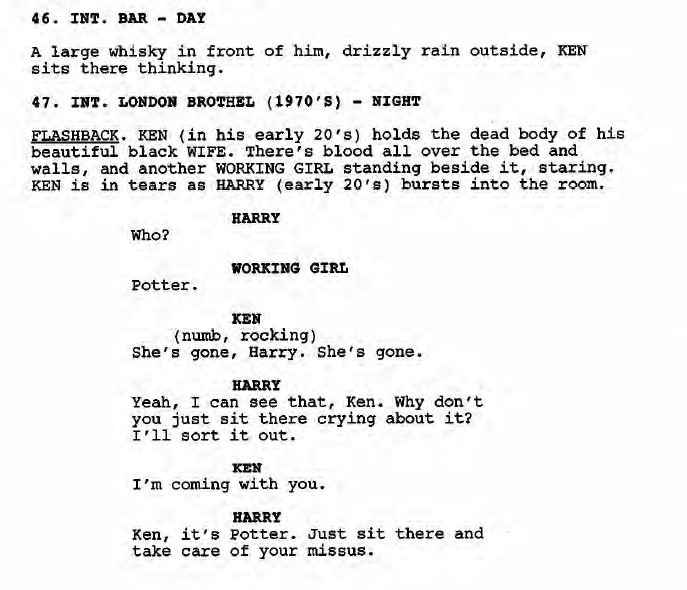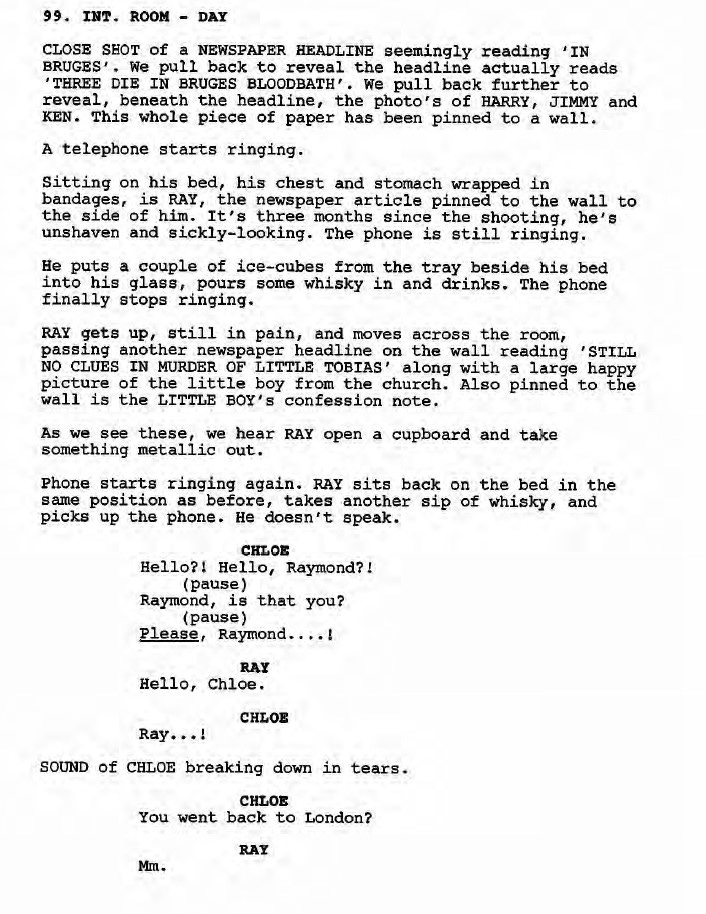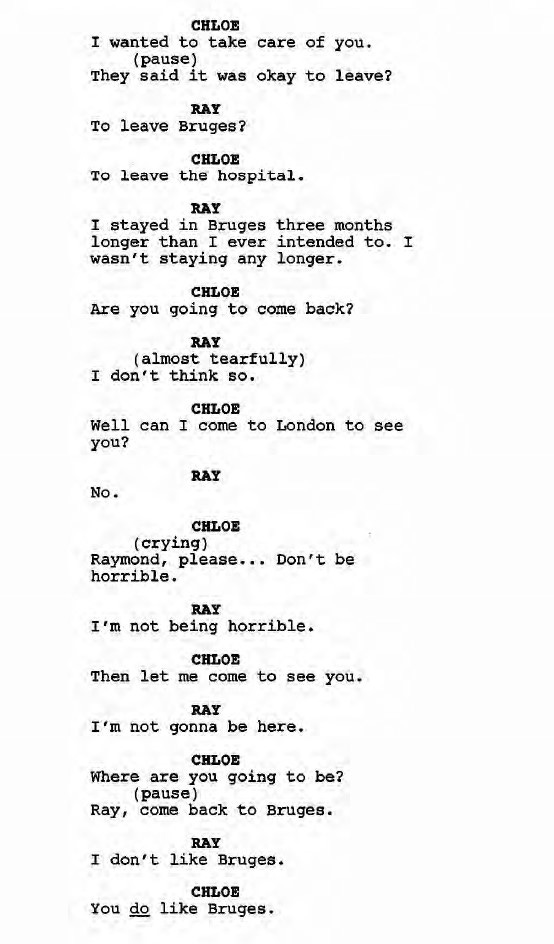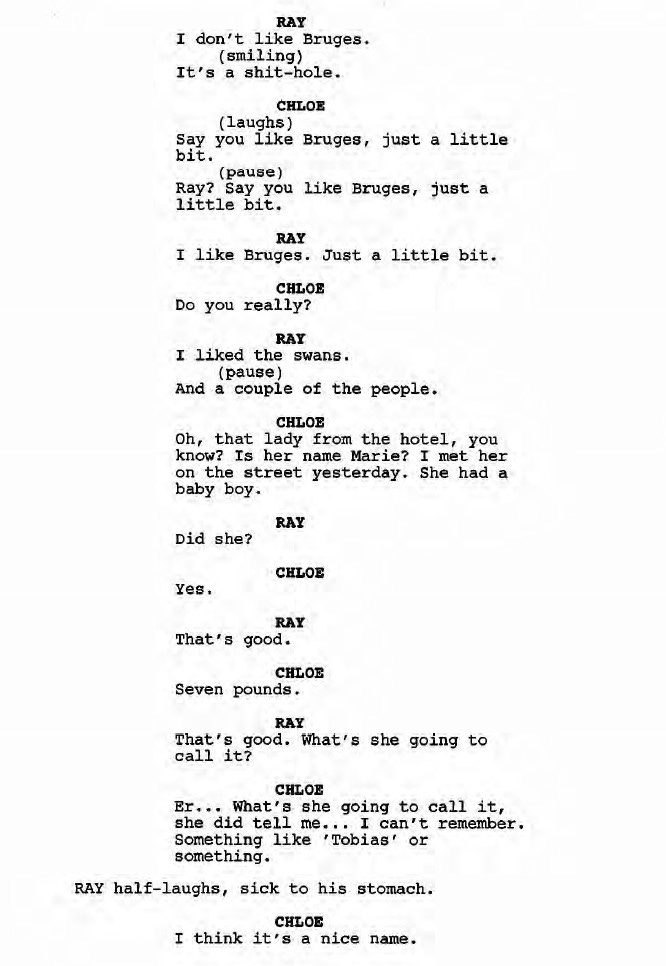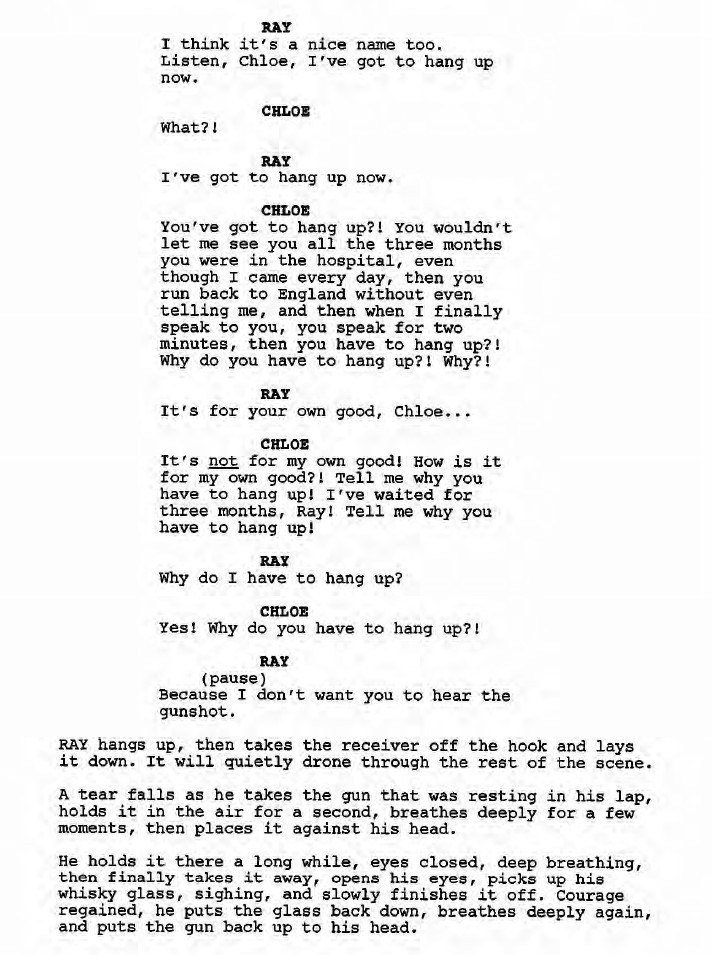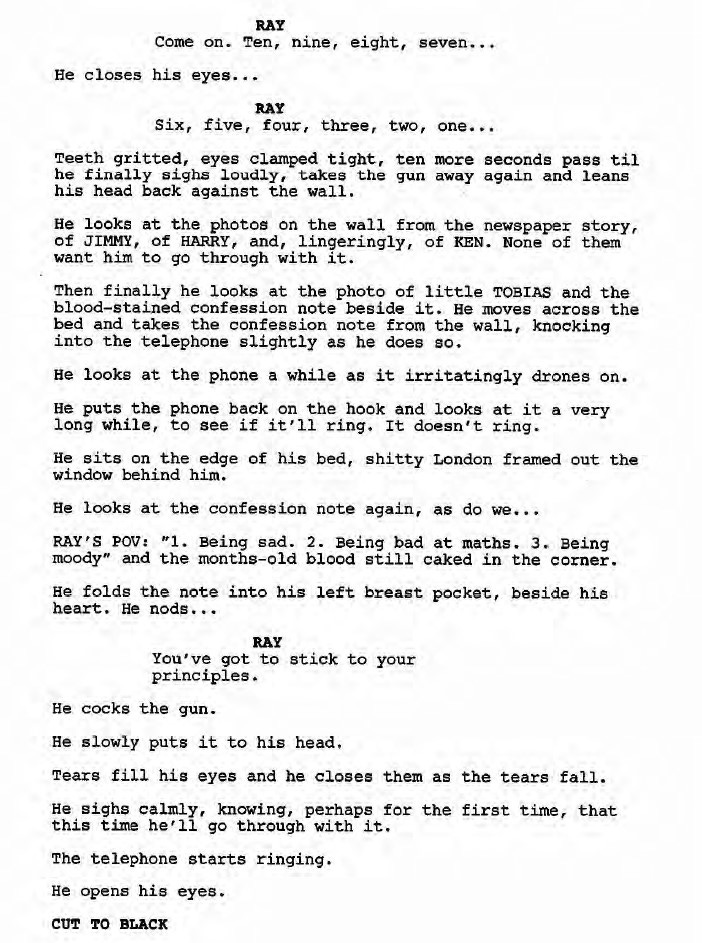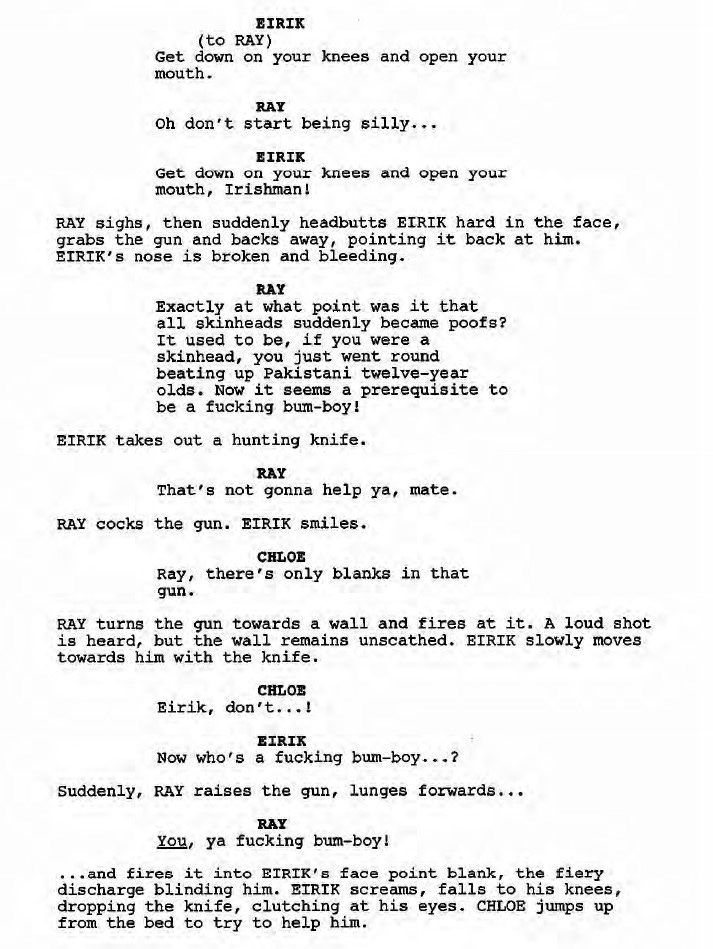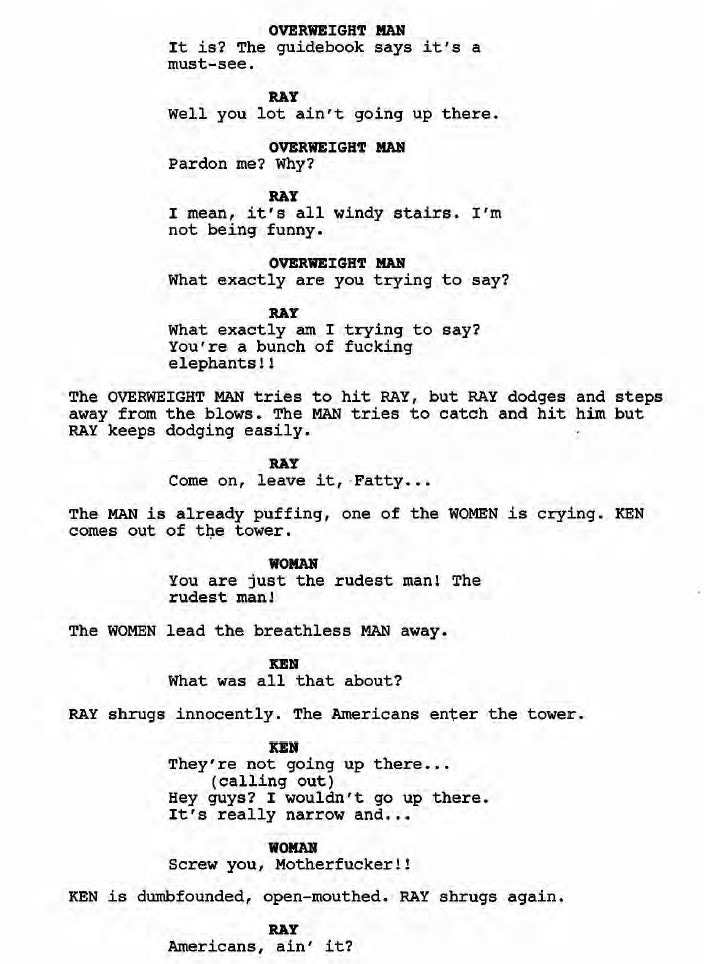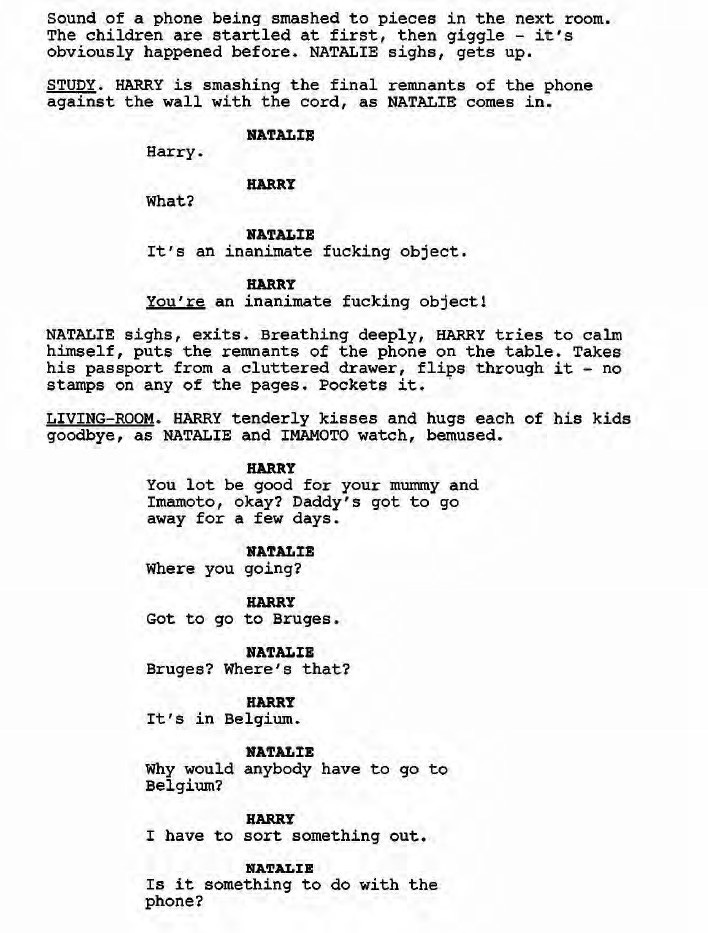In Bruges (2008) Script Review | #40 WGA 101 Greatest Scripts of the 21st Century
A dark but funny crime story that subverts the genre and expectations to establish Martin McDonagh as a powerful and inimitable new voice in cinema.
Logline: Guilt-stricken after a job gone wrong, hitman Ray and his partner await orders from their ruthless boss in Bruges, Belgium, the last place in the world Ray wants to be.
Written by: Martin McDonagh
Pages: 97
Scenes: 99
Characters:
Ray
Ken
Harry
Chloe
Marie
Eirik
In Bruges is wickedly funny, sad, and absurd, sometimes all of them together at the same time. It’s the kind of screenplay that announces itself right off the bat what kind of story it’s going to be, and keep you glued until the final page. Sprightly written, superbly concise in its pacing, this script about two low-level hitmen hiding in Bruges after a job goes wrong marks an auspicious debut for Martin McDonagh, who entered the cinema arena with guns blazing and has only continued to improve since.
The hitmen are Ray and Ken. Ray is young and wants to have fun; Ken is older and worldlier. Ray hates Bruges; Ken likes Bruges. This pairing immediately sets them up as an odd-couple duo, priming them for much bickering and pushing them to change along the way. The reason they are hiding in this small charming town is because Ray accidentally killed a small boy on the job. The tragedy weighs heavily on Ray’s conscience, and all he wants to do is get drunk. While exploring the town, Ray becomes smitten with Chloe after running into her on a film set. He even manages to score a date with her. What Ray doesn’t realize is that his boss, Harry Waters, wants Ken to kill him. He only sent Ray to Bruges because he wanted to do something nice for the young man before he had him put into the ground. The irony truly abounds.
Since this is his first feature-length screenplay, McDonagh keeps his circle of characters small. Other supporting characters include Eirik (Chloe’s ex-boyfriend who sometimes robs tourists with Chloe), Marie (the pregnant hotel co-owner), Jimmy (a dwarf actor), and Yuri (the local weapons dealer). There’s also a Canadian couple as well as an American family on holiday. But each character has an important role; for instance, Ray gets into an altercation with the Canadian couple on his date with Chloe, and they get him arrested just as he’s on a train leaving Bruges. All of Bruges is a stage, and each character has their role to play.
Something that McDonagh does to develop conflict and drama is to establish his characters as opposites, seen notably in the pairing of Ray and Ken.
Or he’ll give them unlikely traits. For instance, Harry Waters is cultured and sensitive while ruthless and foul-mouthed at the same time…
… while Yuri is soft-spoken and obsessed with the world ‘alcoves.’
The result is that the dialogue is funny and the characters become humanized. Ray and Ken don’t behave like stereotypical hitmen in the movies. They have likes and dislikes, and they have their own troubles. Ray is suicidal. Ken is torn between obeying Harry, a longtime friend, and saving Ray. Harry loves his wife and children, and becomes especially offended when Ken makes a crack about his children.
The lesson being: If you give your characters likes and dislikes, their responses to a situation might yield unexpected results.
In Bruges is only 97 pages long and has 99 Scenes; in the finished film, a few of these scenes are cut out, such as flashbacks that flesh out Ken’s backstory…
… and Harry’s backstory.
In addition, the final scene- Scene 99- is also omitted; it’s easy to see why McDonagh chose to remove it. Without it, there exists a hallucinatory possibility that Ray is stuck in some kind of purgatory and cannot leave.
As a result, you could say that’s really a total of 92 scenes, and a page count less than 97. That roughly adds up to about 30 pages per Act. But McDonagh, who was an established Irish playwright before he turned to movies, avoids making his premise feel like a long play by following the principles of cinema. This means quick scenes that allowed him to “jump around in time and space” and using visual imagery to convey how characters feel. Even his dialogue, which feels like it belongs on the stage— rapid-fire and witty— avoids going on for too long or being descriptive.
What is the Act Structure of In Bruges?
Act 1: 1-30 (Day 1-2)
Act 2: 31-60 (Day 2-3)
Act 3: 61-97 (Day 3)
The narrative spans three days and follows as such:
Day 1 – Ray and Ken arrive in Bruges, and learn that they have to share a room. Ray convinces Ken to go out instead of staying in their room waiting for Harry to call. Ray meets Chloe and gets a date. Ken, who returned earlier to the room, learns that Harry had called and left a message.
Day 2 – Ken drags Ray to tourist sites since the latter has a date that night. Their sight-seeing includes a tower that becomes a crucial plot point in the final Act. Despite his upcoming date with Chloe, Ray is still sad. (End of Act 1)
The date goes promisingly, although Ray punches a Canadian couple in the restaurant. Later, he’s jumped by Eirik though he gets the upper hand almost immediately. Chloe assures him that her attraction to him is genuine and that she had actually warned Eirik away. Despondent, Ray wanders off and encounters a drunk Ken. What he doesn’t know is that Harry had called Ken and ordered him to kill Ray. Ray and Ken hang out with Jimmy the dwarf and do coke.
Day 3 – Early that morning, Ken picks up a gun from Yuri but discovers that Ray has gone to the park to commit suicide. (End of Act 2)
Ken stops Ray in the nick of time, tells him what Harry wanted, and puts Ray on a train instead. An apoplectic Harry travels to Bruges to deal with Ken. However, Ray has been arrested for assaulting the Canadians and is bailed out by Chloe. Although Harry came with the intention of killing Ken, he shoots him in the leg instead. But Eirik, who harbors a hatred for Ray blinding him, alerts them to Ray’s presence. Ken, fatally wounded by Harry when he tries to stop him, throws himself off the tower to warn Ray. A chase begins between Harry and Ray. Ray is shot by Harry but in the process, Jimmy is also killed. Harry, mistakenly thinking Jimmy is a child, shoots himself.
There’s much to love in this script that it’s hard to know where to begin. Perhaps the most refreshing aspect is McDonagh subverting tropes and expectations; like the scene where Ray overpowers Eirik and mocks him…
… or the two men trying to have a shootout in the hotel without hitting the pregnant Marie.
It’s in the way he takes this macho, violent world and makes the characters sadder, more vulnerable. The violence is horrible, and their lives are not glamorous, like, say, John Wick. It’s also the characters having outsized yet grounded reactions, such as when Ray offends some American tourists…
… or my favorite, when Harry loses his temper and yells at his wife while smashing the phone.
The dialogue really is first-rate. McDonagh uses repetition to create rhythm and momentum when characters speak, and grounds the conversations in real emotions, such as when Harry and Ken are arguing heatedly. There’s also plenty of dramatic irony that enriches the story, such as Ray’s continuous failure to leave Bruges.
Why Bruges, though, exactly? The reason stems from personal experiences. Around 2004, McDonagh visited the town and was amazed that such a beautiful town hadn’t been put on screen before. But soon enough, he got bored with the museums and churches and just wanted to go out and get drunk. It was there that the characters of Ken and Ray began to emerge, one being a “culture-loving geek” and the other being a “drunken slut.”
Originally, he wrote the hitmen duo as London gangsters but reworked it when the possibility of working with Colin Farrell and Brendan Gleeson came up. Plus, he thought the idea of two Irish guys working for an Englishman would add “extra frisson.” The town of Bruges is another character, influencing the darker half of the screenplay.
Although In Bruges was his debut, McDonagh didn’t ‘emerge’ from the unknown. He’d already made a name on the stage and even won an Academy Award for Best Short Film with Six Shooter, his first collaboration with Brendan Gleeson. Even though McDonagh left school at 16, he was an autodidact, and read and watched a lot. Perhaps in a twist fitting for a writer who turns expectations on their head, he was not a big fan of theater; if anything, it was a precursor to making his eventual jump to cinema. For his efforts with In Bruges, he received his first Academy Award nomination for Best Original Screenplay, and won the BAFTA Award in the same category. Few filmmakers establish themselves so confidently as McDonagh does with here. It’s a brilliant script, and is an excellent template for writing a first-time feature: small cast, few locations, but packed with wit, style, and heart to make it stand out.
Notes:
Abeel, Erica (February 6, 2008) | IndieWIRE INTERVIEW | “In Bruges” Director Martin McDonagh (Indiewire)



